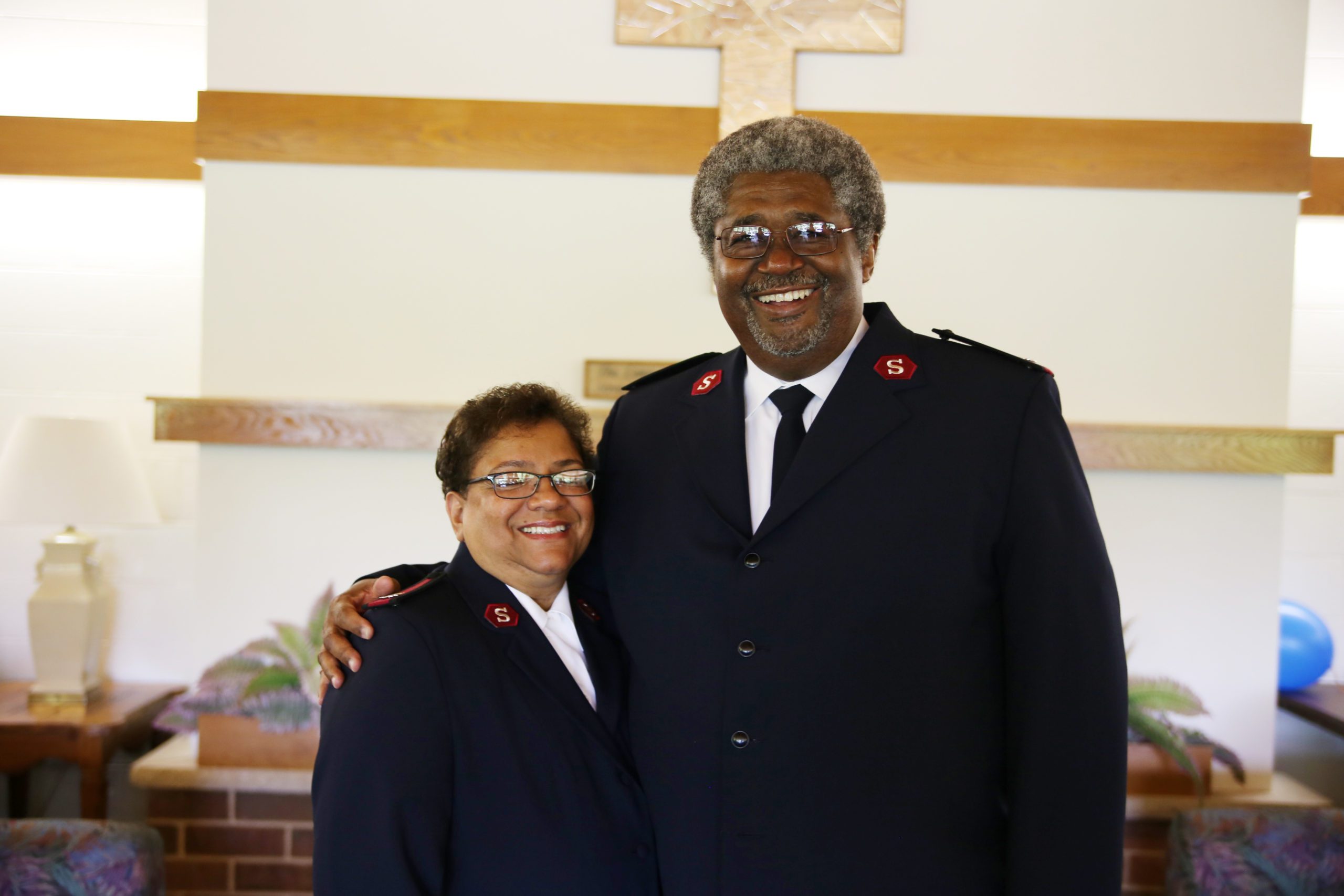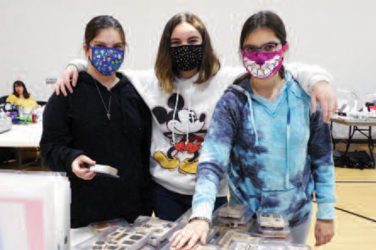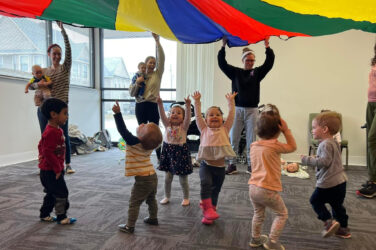With the Racial Justice Summit around the corner, we are honored that Major Steve Harper, one of the territory’s first African-American officers commissioned in 1971, shares some of his story, including experiences with racism, helping us understand a little better what it might be like to walk in someone else’s shoes.
Growing up, were you keenly aware of racism? How did it affect you?
 My first clear memory of racialized language was after we had shopped for school clothes downtown in Kansas City. I was just 5. We ran to catch the city bus to go home. I had the hand of my younger brother; my older sister held our younger toddler sister, and my mother held the youngest who was less than a year old. We had a bunch of packages, some of which my mother put on the seat behind the driver to get the fare from her purse. The driver yelled, “Get to the back of the bus!”
My first clear memory of racialized language was after we had shopped for school clothes downtown in Kansas City. I was just 5. We ran to catch the city bus to go home. I had the hand of my younger brother; my older sister held our younger toddler sister, and my mother held the youngest who was less than a year old. We had a bunch of packages, some of which my mother put on the seat behind the driver to get the fare from her purse. The driver yelled, “Get to the back of the bus!”
Even as I recall it, I remember being mad. I was more angry about the way he talked to my mother than about going to the back of the bus. At the end of the line when we got off and walked home, I was still angry. My mother calmly asked what was wrong, and I told her I didn’t like how the bus driver spoke to her. She replied that he was only doing his job, and he could lose his job if others complained. It was just the way of life.
After I finished second grade, a year or two after Brown vs. Topeka Board of Education, we moved to a school district that required us to integrate into the local grade school. It was unpleasant. Because of my age I was moved back a grade even though my mother petitioned for me to take a competency test. My little sister, who was in kindergarten, was injured when another kid pushed her out of a swing on the playground. I felt bad because I was supposed to be watching out for her. I walked her over to a teacher, who looked at my sister crying and turned her head away. After repeated trips to the school, my mother moved us to another already integrated school which had both Hispanics and Native Americans. It proved a much better experience.
In high school all the teachers were white; the few staff who weren’t had custodial jobs. One day a note on my locker said to go see my guidance counselor. He asked if I had plans after graduation, and I told him I wanted to go to college. He looked at my file and said, “You should work at the post office like your mother.” I never went back to see him.
However, one of my favorite teachers asked the same question. When I told him about my experience with the counselor, he was angry. Shortly after that, I got a note on my locker changing my senior schedule to include the necessary classes for college. Marion Woolls will always be my favorite teacher. He was one of the few who sat classes alphabetically, not all the black students in the back. He would also call on black students who raised their hands to answer questions.
When did you come to Christ and was your decision inhibited or promoted by what you saw in churches?
My mother always sent us to church, but it was not until I started attending The Salvation Army that I saw a practical expression of service to God. I was invited by two brothers, who were white, during high school. The younger brother and I shared the same homeroom and core classes; all three of us were in band. They invited me to play on the corps basketball team, but before I knew it, I was playing a bass drum on the street corner.
I accepted Christ at camp during an altar call. I don’t remember who preached or even the subject, but I found myself kneeling at a metal folding chair. When I looked up, my friends were kneeling around me. The corps people embraced me and congratulated me. It was an all-white congregation. After I accepted Christ, I was encouraged to become a soldier, so I joined a recruits’ class.
When did you receive your calling to officership?
I received my call to officership at a youth councils. I remember they asked, “What are you going to do with the rest of your life? God needs you. The Salvation Army needs you.” Of course, this was said to everyone, but I felt it was just to me. I was 17.
Did being African-American give you pause when it came to the decision to become an officer?
I would not call it a pause, but I watched and listened in my little corps, Kansas City Bellefontaine, where there was a consistent message of God’s love and that God could use me in The Salvation Army.
I also went to a great source in decision-making, my mother. She didn’t know much about the Army, so I took it upon myself to help her understand. By this time, she had prepared us for a world that might not accept us. Her final words to me were: “Don’t forget where home is.” She was reminding me of how I was raised to be persistent and steadfast.
I joke that I left home for training college before I ever saw any black person in Salvation Army uniform. I was either a fool or it was God’s will. I leaned toward God’s will. Obviously it was as my wife and I have been officers for more than 46 years.
Did you feel where you could be appointed was limited?
While in training I knew appointments might be a challenge. In 1969, I was a single black male first-year cadet. There was one single black female second-year cadet. There was a single black lieutenant commissioned that June, and a married black couple who were captains. I concluded the Army had failed at recruitment of African-Americans or hadn’t really tried.
While in Chicago I befriended black Salvationists, who embraced me and seemed proud I was in training. Although they saw the Army as a white organization, they joined because they had been loved by a particular officer.
Our individual actions, showing the love of Christ, can be powerful.
Yes.
Regardless of your appointment or acceptance by the community, how did God use you? Care to share an example?
In my second appointment I was sent as assistant corps officer to an all-white corps in a neighborhood that had changed demographics. No soldiers or attenders still lived there.
I was told by the divisional commander to start inviting the community. I proceeded to do just that, reaching out to the neighborhood about corps programs and letting them know we had a game room and a basketball court in the parking lot.
After a couple of weeks, no one had shown up. So, during Sunday school I walked across the street where a large family I had invited lived. They said they had come over, but the front door was locked. I discovered some soldiers had locked the door to keep “them” out. I reported this to the corps officers who expressed shock and anger. We decided next week I would walk across the street and bring the family to Sunday school. I think I was more acceptable because I was an officer and played the drums—they had a 20-piece band and needed a percussionist—but the family across the street was different. Soldiers complained so much, eventually the corps officers were moved. Later, I was, too.
Do you feel The Salvation Army identified, invested in and used your skills and gifts?
I believe leaders thought Diane and I were able to work across racial lines. I hope it was because it did not matter who we served but Whom we served.
We had two appointments to all white corps. Well, the Sunday before we arrived it was all white. Diane and I were appointed to an urban white corps in a neighborhood that had been dissected by an interstate highway that was to be built. The corps was in the smaller portion.
The neighborhood was white, but we sensed tensions related to a burgeoning black community around them. It was a poor to working-class neighborhood, and they were not happy when it was announced their new corps officers were black. When someone used the “N” word, one of the corps leaders yelled out to defend us. She knew me from earlier ministry to her family in a hard circumstance. Her words helped turned things around. It gave us a chance. In time, the corps congregation accepted us, and we were well loved. We were able to reopen the community center and slowly they accepted other people of color from the community.
Wow. It speaks again to our responsibility as individual believers. Were there individuals who believed in you and you considered advocates?
Although my mother died young at age 50, she was someone we trusted because her advice was always marked by love for us.
Colonel Tom Lewis was like a mentor to me.
There were people like Colonel John Payton, who as my divisional commander addressed an incident that happened when I went to shake another officer’s hand and he looked down at mine and walked off.
You and your wife are known as joyful people. How did you deal with hurtful experiences, especially racism, and not become bitter?
It goes back to the instruction I got from my mother. In the face of abject racism, she never got bitter or even cursed. We must cherish the good things and get over the bad; otherwise, we can get caught up in negativity.
A friend called recently to apologize for something he said to me more than 50 years ago. Once he recounted what happened, I assured him I didn’t remember it and told him I always consider the source. A close friend is allowed more leeway, certainly more than a stranger.
What do you feel needs to happen for us to more fully reflect God’s Kingdom and most effectively fulfill our mission in unity?
If I knew what needed to happen, I’d shout it from the mountaintop. What I am confident of is this should not be based on some snappy slogan or flashy motto. That would be seen the same as “throwing money at the problem.”
Some difficult self-analysis must take place followed by a sincere heartfelt plan that is simple and includes input from both leaders and “the least of these.” We must remember that changing the direction of the largest ship in the ocean will take some time.
Any other thoughts you’d like to leave us with?
What is the mission? The song “Banners and Bonnets” about The Salvation Army by Meredith Willson asks if you can love the unloved in the Spirit of the Lord. I’d sign up all over again if we commit to serving the least among us.




